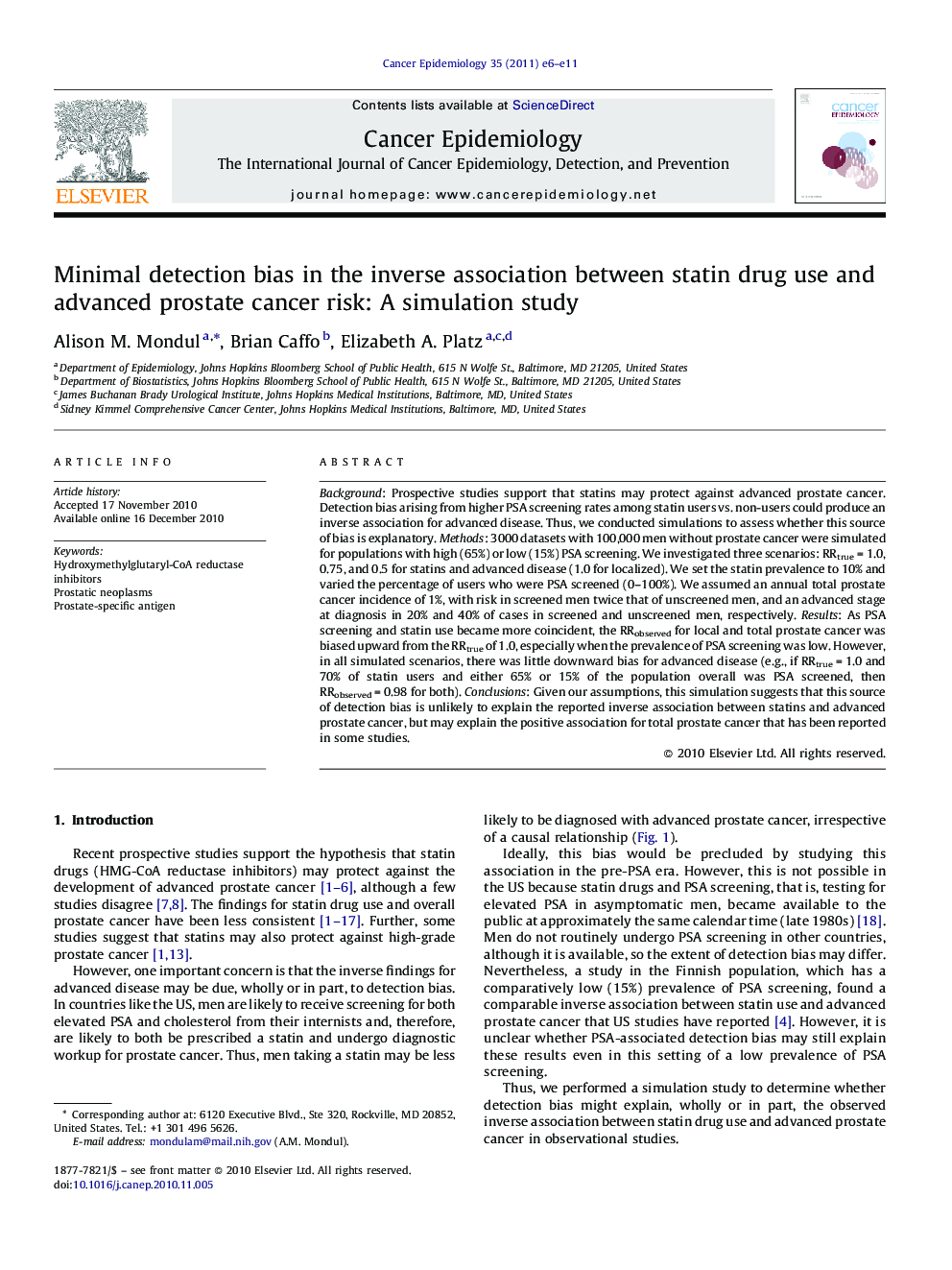| کد مقاله | کد نشریه | سال انتشار | مقاله انگلیسی | نسخه تمام متن |
|---|---|---|---|---|
| 2109149 | 1083861 | 2011 | 6 صفحه PDF | دانلود رایگان |
عنوان انگلیسی مقاله ISI
Minimal detection bias in the inverse association between statin drug use and advanced prostate cancer risk: A simulation study
دانلود مقاله + سفارش ترجمه
دانلود مقاله ISI انگلیسی
رایگان برای ایرانیان
کلمات کلیدی
موضوعات مرتبط
علوم زیستی و بیوفناوری
بیوشیمی، ژنتیک و زیست شناسی مولکولی
تحقیقات سرطان
پیش نمایش صفحه اول مقاله

چکیده انگلیسی
Background: Prospective studies support that statins may protect against advanced prostate cancer. Detection bias arising from higher PSA screening rates among statin users vs. non-users could produce an inverse association for advanced disease. Thus, we conducted simulations to assess whether this source of bias is explanatory. Methods: 3000 datasets with 100,000 men without prostate cancer were simulated for populations with high (65%) or low (15%) PSA screening. We investigated three scenarios: RRtrue = 1.0, 0.75, and 0.5 for statins and advanced disease (1.0 for localized). We set the statin prevalence to 10% and varied the percentage of users who were PSA screened (0-100%). We assumed an annual total prostate cancer incidence of 1%, with risk in screened men twice that of unscreened men, and an advanced stage at diagnosis in 20% and 40% of cases in screened and unscreened men, respectively. Results: As PSA screening and statin use became more coincident, the RRobserved for local and total prostate cancer was biased upward from the RRtrue of 1.0, especially when the prevalence of PSA screening was low. However, in all simulated scenarios, there was little downward bias for advanced disease (e.g., if RRtrue = 1.0 and 70% of statin users and either 65% or 15% of the population overall was PSA screened, then RRobserved = 0.98 for both). Conclusions: Given our assumptions, this simulation suggests that this source of detection bias is unlikely to explain the reported inverse association between statins and advanced prostate cancer, but may explain the positive association for total prostate cancer that has been reported in some studies.
ناشر
Database: Elsevier - ScienceDirect (ساینس دایرکت)
Journal: Cancer Epidemiology - Volume 35, Issue 4, August 2011, Pages e6-e11
Journal: Cancer Epidemiology - Volume 35, Issue 4, August 2011, Pages e6-e11
نویسندگان
Alison M. Mondul, Brian Caffo, Elizabeth A. Platz,